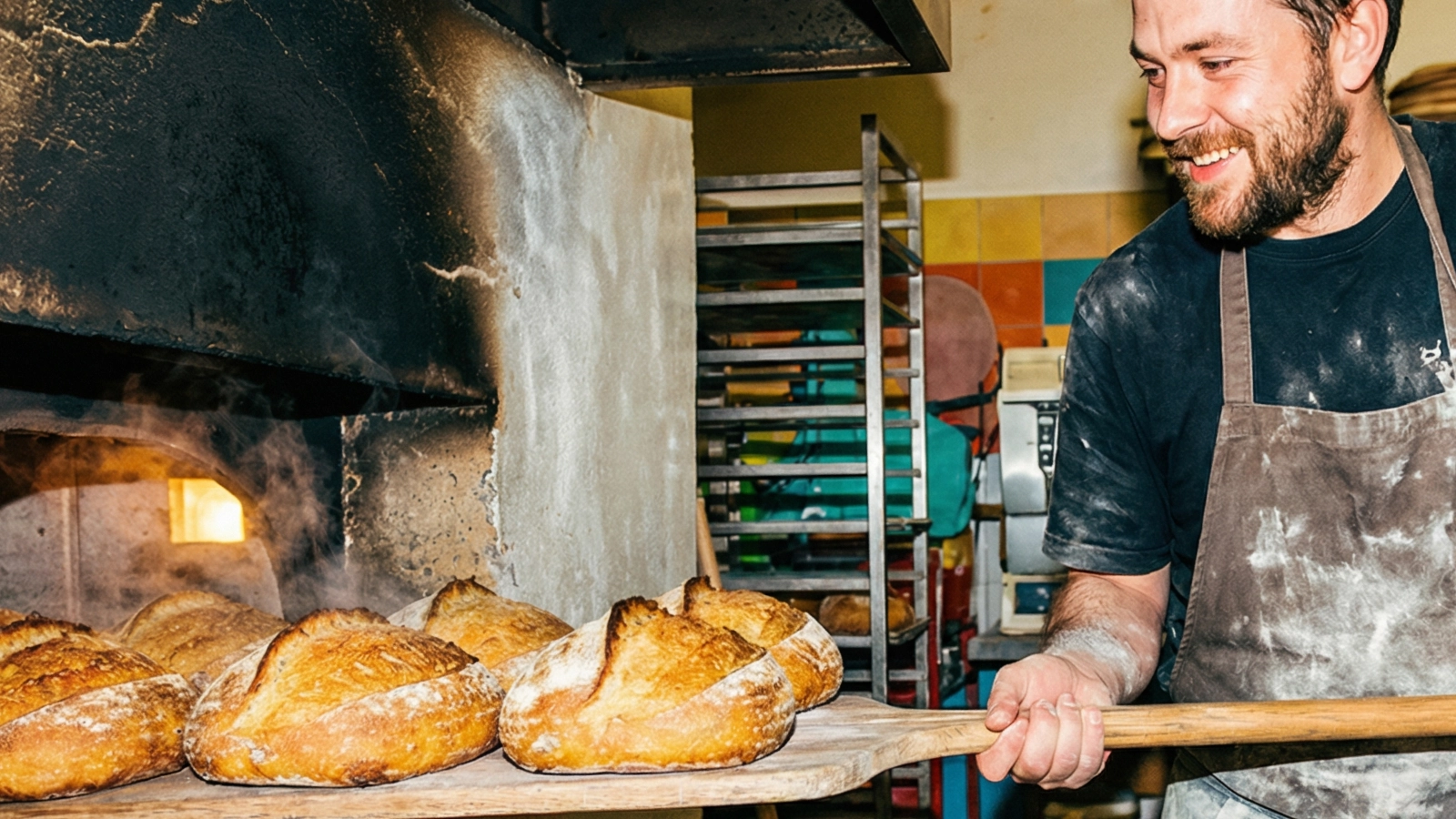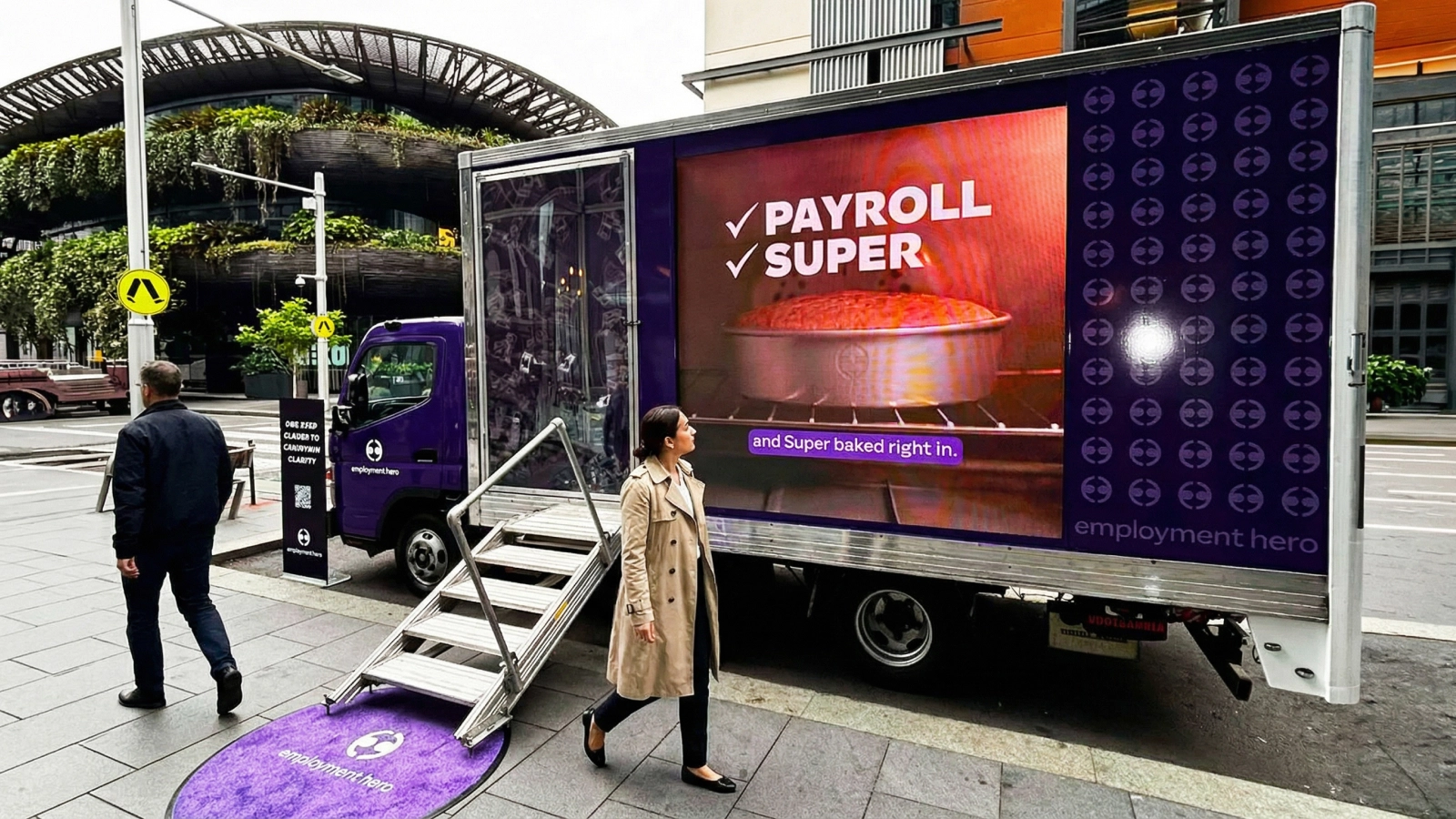Innovator-in-chief Fred Schebesta strips away start-up clichés and explains how true creativity, culture and AI have the ability to be utilised and deployed in any business of any size.
Fred Schebesta doesn’t look like a CEO. When we meet, he is dressed head to toe in black. A singlet, jeans, heavy boots. His hair is wild, his beard unrestrained. He looks more like the frontman of a band than the founder of one of Australia’s best-known tech companies. Yet when he speaks, it is not with the hurried energy of a start-up founder. It is slower, deliberate and almost philosophical. Every line lands with intent. “I’m not an entrepreneur,” he says. “I’m a creator.”
That distinction sits at the heart of how Schebesta approaches business. For him, creation is not just about building products or chasing revenue. It is the act of pulling something from imagination into reality. “Creation is messy, but it’s beautiful,” he says. “You pull something out of the soup of imagination and make it real.” He sees entrepreneurship as an art form, not an economic equation. The key is curiosity. “I was never the kid selling lemonade,” he says. “I was the kid pulling things apart to see how they worked.”
Writing the rules of innovation
Schebesta’s career has been defined by that instinct to question boundaries. He co-founded Finder in 2006, helped to build it into a global brand and along the way collided with regulation itself. When the Australian Securities and Investments Commission took Finder to court over its crypto product Finder Earn, Schebesta faced headlines, fines and the threat of prison. Twice, Finder won in the Federal Court. “I don’t break rules,” he says. “I write them.”
Innovation, in his view, is about freedom of thought and movement. When business owners fear failure, creativity dies. “When you know you’re doing something right, even if it’s risky, don’t slow down,” he says. “Go faster. You’re changing the fabric of what’s possible.”
For small businesses, that mindset can be transformative. You might not be rewriting financial law, but you can question assumptions, test unconventional ideas and learn faster than your competitors. Innovation rarely begins with permission. It begins with curiosity and the courage to act on it.
Building a culture of creation
Inside his companies, Schebesta tries to institutionalise that courage. “Creativity’s brutal,” he says. “You throw 90 per cent of what you make in the bin.” That reality, he argues, demands an environment where failure is routine, not career-ending. He designs workspaces to maximise what he calls “serendipity”, the chance collisions of people and ideas that spark something new.
Hiring, for him, is about qualities, not credentials. “Give a bad idea to a great team and they’ll turn it into something extraordinary,” he says. To keep that spirit alive, he encourages rituals that build energy and trust. In his creative teams, that means starting the day with games like Scattagories. “It sounds silly,” he says, “but it opens people up. It’s lateral. You can’t create if you’re tense.”
He is equally blunt about leadership. “If your leaders aren’t on the tools, you’re dying,” he says. He still writes advertising copy and tests product ideas himself. “The moment you stop creating, you lose your edge,” he adds. “You can’t lead innovation from a spreadsheet.”
The human side of AI
Despite his anti-establishment energy, Schebesta is pragmatic about technology. For him, artificial intelligence is not a threat but the next wave of creative possibility. “AI’s like electricity,” he says. “It’ll be in everything.” At Finder, he says 90 per cent of code now involves AI in some form, from marketing to engineering.
But his fascination is not with automation. It is with what remains human. “AI gets you most of the way,” he says. “The last five percent, the empathy, the weirdness, the feeling… that’s still ours.” He believes the future will belong to people who can combine the precision of machines with the emotional intelligence of humans. “AI is an instrument,” he says. “The art comes from how you play it.”
For small businesses, the message is simple. Use AI to save time and cost, but don’t outsource your personality. Keep the human touch in your storytelling, service and customer experience. Technology is a tool. Connection is the strategy.
Leading with courage
The leaders he admires, he explains, are those who let go of control and trust others to create. He points to Walt Disney, who mortgaged his house to make Snow White, and Pixar, which risked everything on Toy Story. “Great leadership isn’t about control,” he says. “It’s about courage.”
That courage, he believes, is what separates creators from caretakers. Whether you are running a global tech company or a five-person business, the challenge is the same: to make something that matters, to take risks, to stay close to the craft.
Schebesta leans back, dark clothes against bright lights, still grinning. He looks every bit the rock star philosopher. His message is as simple as it is uncomfortable: innovation isn’t a policy or a department. It’s a way of being. For those willing to create, question and keep learning, the rules are still being written.



























